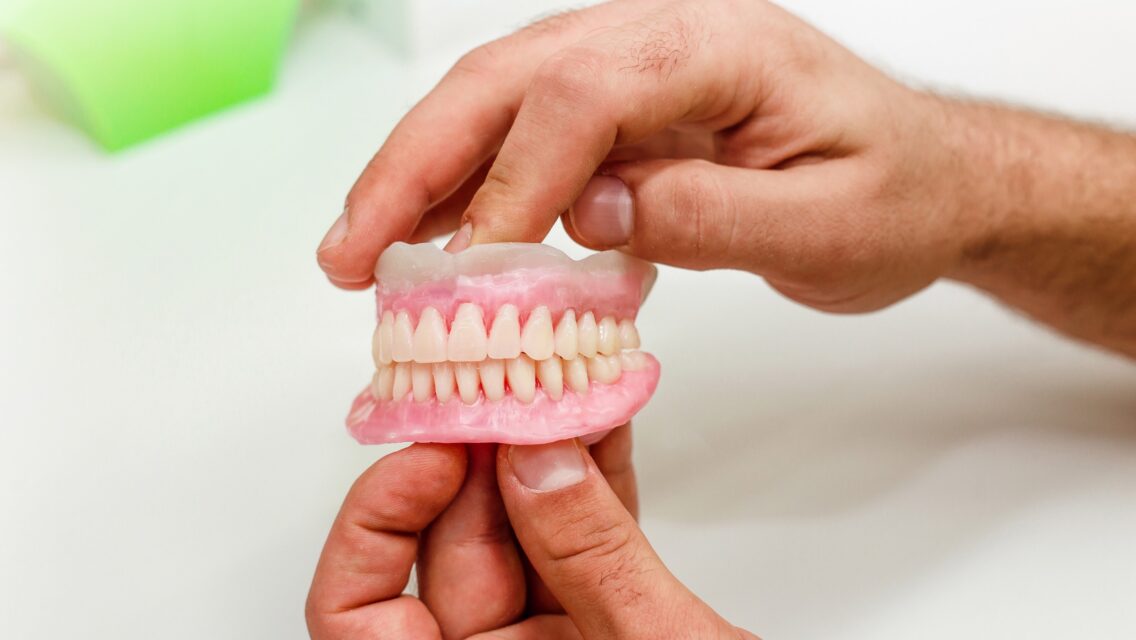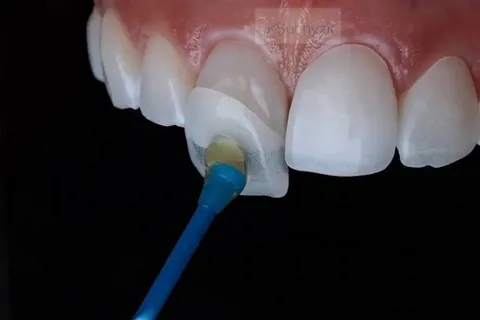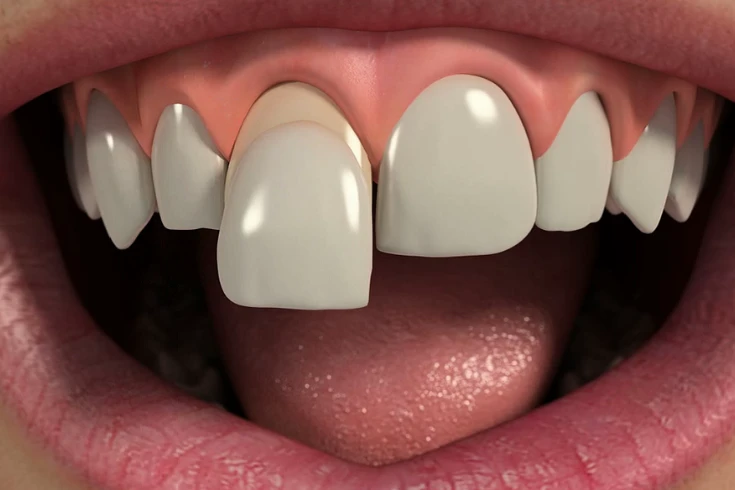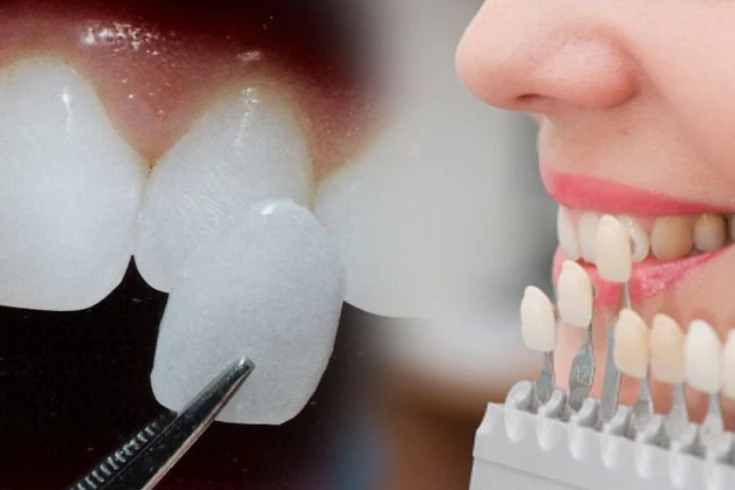Medicare is not for the weak as it is complex and requires a lot of research, especially when it comes to oral health. One common question is whether Medicare covers the cost of dentures. Here, we’ll break down the details to give you a clear picture of the cost of dentures with Medicare.
Does Medicare Cover the Cost of Dentures?
The answer to “does Medicare cover the cost of dentures?” is that in most cases, Medicare doesn’t cover dental services like routine cleanings, fillings, tooth extractions, or items like dentures.
However, Medicare may cover certain dental services if you are admitted as a hospital inpatient for a dental procedure due to an underlying medical condition or the severity of the procedure.
In terms of denture costs with Medicare, certain inpatient or outpatient dental services directly linked to covered medical treatments may be incorporated. For instance, you must get the dental service because it’s linked to the success of the medical treatment you need, such as:
- An oral exam and dental treatment before you get a heart valve replacement or a bone marrow, organ, or kidney transplant.
- A procedure (like a tooth extraction) to treat a mouth infection before you get cancer treatment services like chemotherapy.
- Treatment for a complication you experience while getting head and neck cancer treatment services.
What are the types of Medicare and Denture Coverage?
Part A (Hospital Insurance): Part A does not cover routine dental care or dentures. However, it might only cover dental services if they are an integral part of a covered procedure (e.g., reconstructive surgery after an accident). On the other hand, Part A covers inpatient hospital stays, care in a skilled nursing facility, hospice care, and some home health care.
Part B (Medical Insurance): Part B also does not cover routine dental care or dentures. However, it may cover dental services that are medically necessary for another covered service (e.g., oral exams prior to a kidney transplant). Part B covers certain doctors’ services, outpatient care, medical supplies, and preventive services.
Part C (Medicare Advantage): An alternative to Original Medicare provided by private insurers includes Parts A and B and often additional benefits. Medicare Part C, also known as Medicare Advantage, is offered by private insurance companies approved by Medicare. Many Medicare Advantage plans include additional benefits, such as dental coverage, which can include dentures. Here’s how to navigate Medicare Part C for denture coverage:
Diving into Part C of Medicare
Analyze Coverage:
- Basic Coverage and Additional Benefits: Medicare Advantage plans must provide at least the same benefits as Original Medicare (Part A and Part B). Many plans offer extra benefits, including dental care. Coverage for dentures varies by plan.
Research Plans:
- Medicare Plan Finder and Search for Insurance Providers: Use the Medicare Plan Finder tool on the official Medicare website to search for and compare Medicare Advantage plans in your area. Furthermore, visit the websites of private insurance companies that offer Medicare Advantage plans to review specific plan details.
Compare Plans:
- Dental Coverage Cost Considerations and Network Providers: Look specifically for plans that offer comprehensive dental coverage, including dentures. Furthermore, it is advisable to review premiums, co-pays, deductibles, and out-of-pocket maximums. Moreover, pay attention to any waiting periods for dental coverage. Lastly ensure that the plan includes a network of dentists and dental specialists who can provide dentures.
Enroll in a Plan:
- Enrollment Periods: You can enroll in or switch Medicare Advantage plans during specific enrollment periods:
- Initial Enrollment Period (IEP): When you first become eligible for Medicare.
- Annual Enrollment Period (AEP): October 15 to December 7 each year.
- Open Enrollment Period (OEP): January 1 to March 31 each year.
- Special Enrollment Period (SEP): Certain life events may qualify you for a SEP.
Confirm Coverage:
- Contact insurers and then plan documents: Call the insurance providers to confirm the details of dental coverage and ensure dentures are included. Review the Evidence of Coverage (EOC) and Summary of Benefits documents for each plan.
Part D (Prescription Drug Coverage): Covers prescription medications and does not cover dentures.
Denture Coverage in Medicare Advantage Plans
Standalone Dental Insurance
It specifically covers dental services, including dentures. These plans are separate from Medicare and include preventive care (cleanings, exams), basic procedures (fillings, extractions), and major procedures (dentures, crowns). Moreover, payment methods include monthly premiums, annual deductibles, co-pays, and coverage limits vary by plan. Furthermore, they are provided by companies like Delta Dental and Cigna.
Steps to Take:
- Research: Look for dental insurance plans that specifically mention denture coverage.
- Compare: Evaluate premiums, deductibles, co-pays, and maximum annual benefits.
- Enroll: Choose the best plan and enroll through the insurance company’s website or a broker.
Medicaid
Medicaid, a state and federal program, offers health coverage for low-income individuals. This includes dental benefits, varying by state based on income, household size, and disability.
Steps to Take:
- Check Eligibility: Visit your state’s Medicaid website or contact a local office to determine if you qualify.
- Review Benefits: Look up your state’s Medicaid dental coverage specifics.
- Apply: If eligible, apply through your state’s Medicaid website or local office.
PACE (Programs of All-Inclusive Care for the Elderly)
Provides comprehensive medical and social services to elderly who are still living in the community but need nursing-home-level care. Moreover, it includes all Medicare and Medicaid services, plus any other services the PACE team determines are necessary, which can include dental care and dentures. Furthermore, it is only eligible for those aged 55 or older who live in a PACE service area.
Steps to Take:
- Check Eligibility: Visit the PACE website or contact a local PACE organization.
- Contact PACE: Call the PACE organization to inquire about services and enrollment.
- Enroll: Enroll in the program to receive comprehensive care, including dental services.
Community Health Clinics
It offers sliding fee dental services based on income, covering preventive, basic, major, and dentures services, with costs determined by the individual’s ability to pay.
Steps to Take:
- Locate Clinics: Use the Health Resources and Services Administration (HRSA) Find a Health Center tool to locate clinics near you.
- Inquire Contact clinics to ask about denture services and costs.
- Schedule: Appointment for an initial consultation.
Dental Schools
Offer services at reduced costs provided by dental students under the supervision of licensed dentists. Moreover, coverage includes a wide range of dental services, including dentures, at significantly lower costs.
Steps to Take:
- Find Schools: Search for dental schools in your area.
- Contact Schools: Call the dental schools to inquire about available services and costs.
- Make Appointments: For consultations and treatments.
Factors Affecting the Cost of Dentures with Medicare
Parts of Medicare:
The cost highly depends on which part it comes under as:
- Part A: Often premium-free if you’ve worked and paid Medicare taxes for at least 10 years; otherwise, premiums apply.
- Part B: Standard premium is $164.90 (as of 2023), with higher premiums for higher-income beneficiaries.
- Part C (Medicare Advantage): Varies by plan and provider; you pay the Part B premium plus any additional plan premium.
- Part D (Prescription Drug Coverage): Varies by plan; higher-income individuals pay more.
Income Levels:
Higher-income beneficiaries pay more for Parts B and D due to Income-Related Monthly Adjustment Amounts (IRMAA).
Additional Coverage:
- Medigap Policies: Help cover out-of-pocket costs; premiums vary by plan, insurer, and location.
- Employer or Union Coverage: This can affect overall costs and coverage.
Geographic Location:
Costs for Medicare Advantage, Part D plans, and Medigap policies can vary by region.
Late Enrollment Penalties:
Penalties for late enrollment in Parts B and D can increase costs.
Plan and Coverage Details:
Specific benefits and coverage options in Medicare Advantage and Part D plans affect costs.
Specific benefits and coverage options in Medicare Advantage and Part D plans affect costs.
Frequently Asked Questions
How much do dentures typically cost without insurance?
The cost of dentures can vary widely depending on the type and quality. Generally, full dentures can cost anywhere from $600 to $8,000 or more per arch (upper or lower). Partial dentures usually range from $700 to $4,000. Moreover, these costs can be significantly reduced with appropriate dental insurance or assistance programs.
Is there any additional cost of dentures with Medicare under Medicare Advantage?
Yes, additional costs may include:
- Monthly premiums for the Medicare Advantage plan.
- Co-pays or co-insurance for dental services.
- Annual deductibles and out-of-pocket maximums.
- Costs for services from out-of-network providers.
What should I consider when choosing Medicare for denture coverage?
When choosing a plan for denture coverage, consider the following:
- Coverage Details: Ensure dentures are explicitly covered.
- Costs: Review premiums
Does Medicare Cover the Cost of Dentures?
Yes, you can choose a Medicare-customized plan that covers dentures and other dental procedures. Check out our guided blog about Medicare and insurance, which includes dentures and other dental treatments. Find the Best Dental Insurance Near Me





